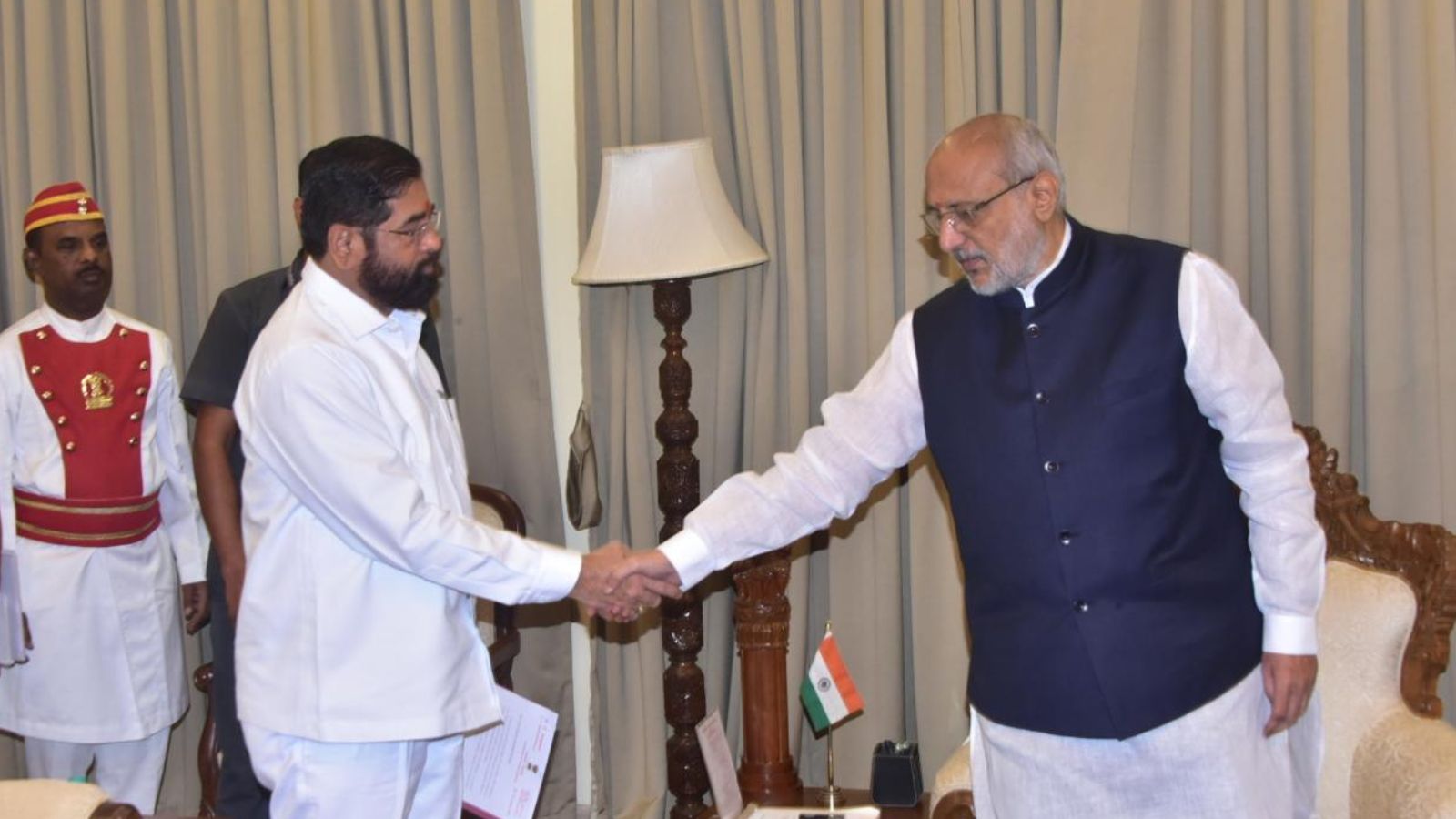 |
|
The political landscape of Maharashtra is currently undergoing a significant shift following the resignation of Chief Minister Eknath Shinde after completing his five-year term. While Shinde tendered his resignation to Governor CP Radhakrishnan, a surprising turn of events saw the Governor request Shinde to continue as caretaker chief minister until a new government is formed. This seemingly straightforward action belies a complex web of political maneuvering and negotiations, primarily between the BJP and the Shinde-led Shiv Sena faction.
The resistance from Shinde's faction of the Shiv Sena to the BJP's apparent preference for Devendra Fadnavis as the next chief minister has created considerable tension. Sources suggest that the BJP offered Shinde a prominent role within the central government and key portfolios in the state cabinet as a compromise. However, reports indicate that Shinde is dissatisfied with this offer and is hoping for a reconsideration of the decision to appoint Fadnavis. This internal conflict within the ruling Mahayuti alliance (an alliance between the BJP, Shinde's Shiv Sena, and Ajit Pawar's NCP faction) highlights the power dynamics at play and the potential for further instability.
Amidst these high-stakes negotiations, Shiv Sena MLA and former minister Deepak Kesarkar attempted to downplay any discord within the alliance. Kesarkar's statement, emphasizing the acceptance of any decision made by Prime Minister Narendra Modi and Home Minister Amit Shah, suggests an attempt to maintain a facade of unity while negotiations continue behind closed doors. The fact that the BJP plans to hold a legislative party meeting to elect its leader further emphasizes the procedural steps involved in this transition of power. The involvement of BJP observers from Delhi in overseeing this meeting underscores the central party's tight control over the process.
Adding another layer of complexity to the situation is the fervent support shown by Shiv Sena leaders and workers for Shinde. Numerous prayers and gatherings across the state were organized to demonstrate this support. However, Shinde himself, in a tweet, appealed for calm and urged his supporters to refrain from congregating at his residence. This appeal highlights the delicate balance Shinde is attempting to strike between maintaining his base's loyalty and engaging in potentially contentious negotiations with the BJP. The appeal also subtly underscores the potential for unrest or public demonstrations if the negotiations do not yield a favorable outcome for Shinde and his followers.
The planned swearing-in ceremony scheduled for December 1st offers a glimpse into the anticipated composition of the new government. The distribution of ministerial berths suggests a power-sharing agreement among the Mahayuti partners: 10 for the BJP, 6 for Shinde's Shiv Sena, and 4 for Ajit Pawar's NCP. This arrangement reflects the relative strength of each party within the coalition and the compromises that have been reached (or are yet to be reached). The fact that this allocation of ministerial positions is being reported ahead of the final decision adds another dimension of speculation and potentially indicates that the broader power-sharing arrangement has been largely agreed upon, even if the CM position remains contentious.
In conclusion, the current political situation in Maharashtra is one of significant uncertainty. While the Mahayuti alliance appears poised to form the government once more, the internal disagreements, particularly regarding the chief minister's position, are far from resolved. The ongoing negotiations, the public displays of support for Shinde, and the behind-the-scenes maneuvering all contribute to a fluid and unpredictable situation. The coming days will be crucial in determining the final power structure and the future direction of Maharashtra's politics. The outcome of these negotiations will not only determine the chief minister but will also likely have significant ramifications for the state's governance and development in the years to come. The role of the BJP, its apparent preference for Fadnavis, and the countervailing forces within the Shinde-led Shiv Sena faction will continue to shape the unfolding political narrative in Maharashtra.
The success of the Mahayuti government will depend not just on its ability to form a stable government, but also its capacity to manage internal differences and deliver on its promises to the electorate. The delicate balance between the BJP and the Shiv Sena factions will need careful management. The appointment of Fadnavis, if it comes to pass, could potentially lead to resentment within the Shinde faction, and the allocation of key ministerial portfolios will play a critical role in mitigating this. The coming weeks and months will be a test of the alliance’s ability to work together effectively and deliver on the expectations of the people of Maharashtra. The stability and effectiveness of the government will hinge on the ability of its constituent parties to overcome their internal differences and work in harmony for the collective good of the state.
Source: Maharashtra Governor asks Eknath Shinde to continue as caretaker CM
